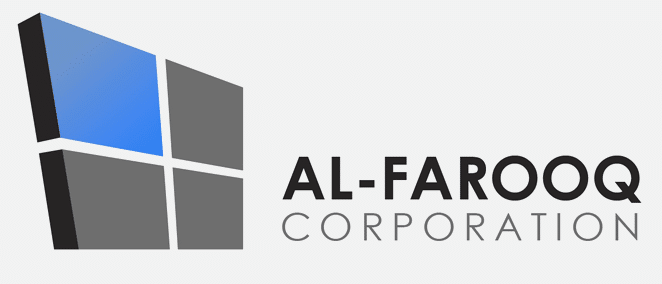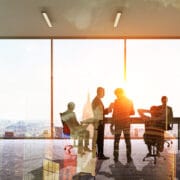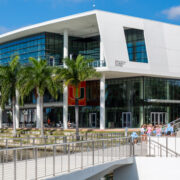Jalal Farooq Discusses how Al-Farooq Corporation is preparing for 2018 hurricane season
With storms Irma and Maria on their minds, CEOs preparing for 2018 hurricane season
Q: Are you doing anything differently to prepare your business for this hurricane season, following last year’s season?
As a business, the most important thing to make sure is that our data is secure, and we’ve done that. Al-Farooq Corporation specializes in engineering for impact-resistant windows, doors and building envelopes, and I would remind everyone that South Florida has the toughest hurricane codes in the country. With that in mind, if I were in an older building, I would have it checked out by a structural engineer.
Jalal Farooq, principal, Al-Farooq Corporation
===
While Community Care Plan was well prepared for last year’s hurricane season, for this hurricane season, we implemented full redundancy in all of our critical operating systems through the use of cloud technology. Where we are preparing differently is for disasters that occur on an everyday basis. With the tragic shootings that happened this year at Marjory Stoneman Douglas High School, we learned that as a healthcare company, we need to be prepared to deal with aspects beyond operations, including the physical, mental, and emotional issues that our employees and members might deal with, on any day.
John Benz, president, CEO, Community Care Plan
===
We have always had a strong hurricane season protocol, but this year we are probably going to enhance it even more. We can operate for a week on our generator system without having to refuel. We purchase emergency supplies, water, and plywood for our employees to be able to maintain them at work, yet we want to make sure that their homes and loved ones are kept safe as well. We have an entire step by step program of all that has to be done in the event of a storm.
Armando Caceres, CEO, founder, All Florida Paper
===
When dealing in the international marketplace, we cannot allow local issues, like hurricanes, to interfere with our ability to service our clients. By relocating our operations to a site with a backup generator, securing redundant internet service from multiple providers and switching to a cloud-based software system, we are now better prepared to face the consequences of a natural disaster.
Ralph De La Rosa, president, CEO, Imperial Freight
===
Yes, we recently launched our new Business Continuity program on June 1. This effort is part of our One Community One Goal initiative to support community resiliency during and after the hurricane season. According to FEMA, 40 percent of small and medium size businesses do not survive the economic impact of a severe storm. This initiative has been created to provide the necessary tools for businesses to prepare prior to the storm and continue operating after the storm has passed.
Michael A. “Mike” Finney, president, CEO, Miami-Dade Beacon Council
===
Just as we do every year, the University of Miami has comprehensive plans in place to protect our students, faculty, and staff should a hurricane reach our area. As soon as hurricane season begins, we ensure that everyone in our community receives the most up to date information through a variety of mediums to help them prepare for a possible storm.
Dr. Julio Frenk, president, University of Miami
===
Yes, this season we are stocking up on more merchandise from our factories because if a hurricane hits Central America or the Caribbean, it takes the region quite a long time to recoup and not being prepared could negatively impact our inventory.
Kaizad Hansotia, founder, CEO, Gurkha Cigars
===
I think we had all gotten a bit complacent when it came to hurricane season and Irma was a rude awakening. Needless to say, we’ve gotten an early start in examining our preparedness plans.
Javier Holtz, chairman, CEO, Marquis Bank
===
We are negotiating contracts and pricing with top restoration firms in advance of storm season in order to have the needed emergency personnel on sites following any damage. We are also in the process of designing flood panels for some of our sites to reduce future water damage, where appropriate. In addition, we are continuing to improve our policies and procedures with the goal to prioritize the safety of our employees, residents, guests and properties.
Camilo Miguel Jr., founder, CEO, Mast Capital
===
As a lifelong Florida resident and someone who huddled in a bathroom with my four small children during Hurricane Andrew, I take every hurricane season seriously. This year will be no different.
Noreen Sablotsky, founder, CEO, Imalac
===
The museum has a very detailed and extensive Hurricane Preparedness Plan that we just completed reviewing as we do each year prior to hurricane season. We follow the Miami-Dade County Evacuation Plans and remain open as long as possible to serve our families. Being in contact with all of our team members is very important through the evacuation and recovery, so we keep our telephone tree updated with at least two numbers per person.
Deborah Spiegelman, CEO, Miami Children’s Museum
===
Like most South Florida companies, hurricane preparedness is a normal part of what we do, and we look to minimize impact to our business, our customers and our employees. As an organization that provides home protection and warranty services to customers across the country in times of need, Cross Country Home Services (CCHS) has made hurricane preparedness a way of life. And with call center operations being a significant part of our business, we have learned to look at preparation differently and more efficiently to ensure less wear and tear on our business and our people. With a well-documented Business Continuity Plan that’s tested and enhanced regularly, we have been able to continue normal business operations during the major storms with no noticeable impact to our customers.
Steve Upshaw, CEO, Cross Country Home Services
====





